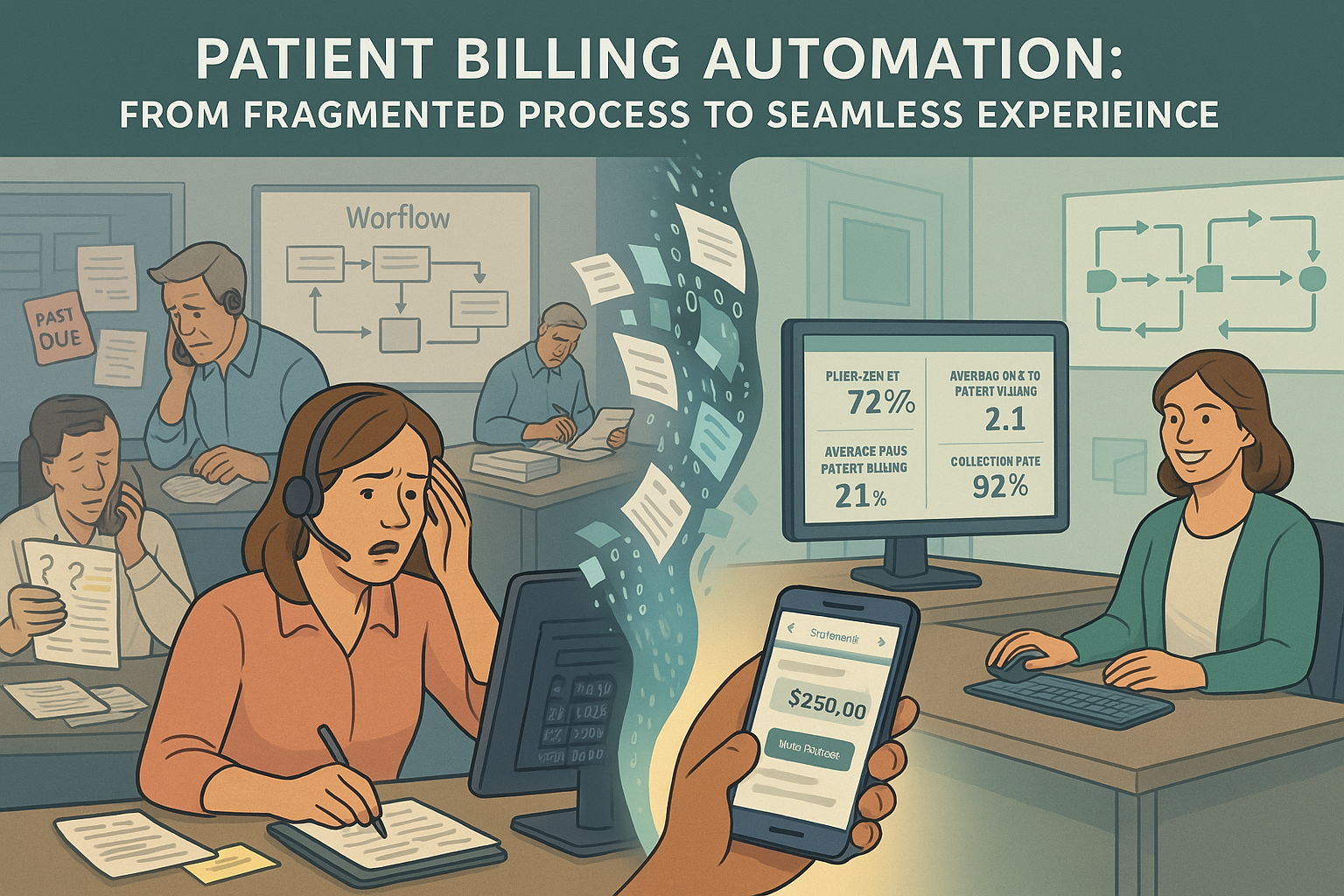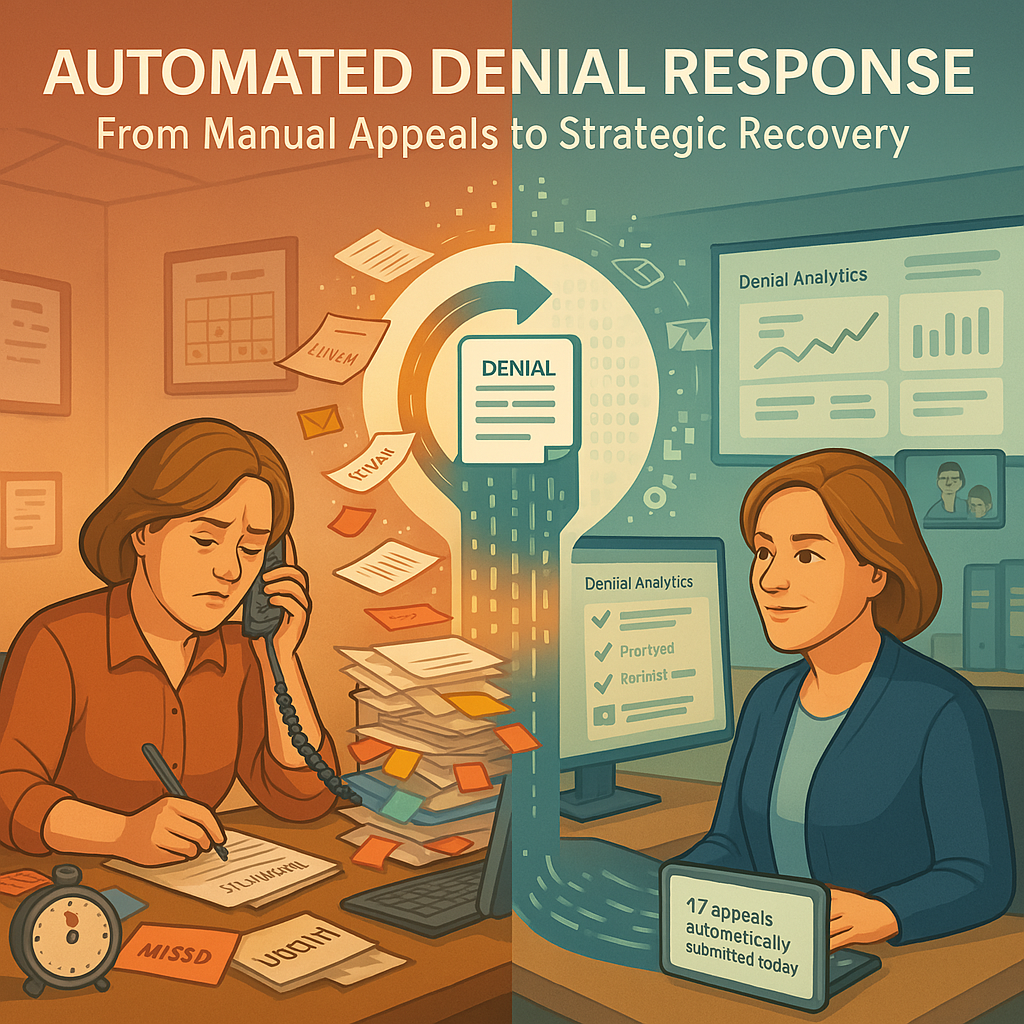
The Role of AI in Healthcare Revenue Cycle Management
The integration of Artificial Intelligence (AI) in healthcare has significantly impacted various aspects of the industry, especially in Revenue Cycle Management (RCM). AI technologies offer healthcare organizations unprecedented opportunities to streamline processes, improve efficiency, and boost financial performance in the evolving landscape of healthcare.
AI’s Influence on Healthcare
AI encompasses a range of technologies designed to replicate human intelligence, analyze vast datasets, and provide valuable insights. In healthcare, AI enhances decision-making, aids in diagnostics, and personalizes patient care. From predictive analytics to robotic-assisted surgeries, AI’s application across healthcare domains underscores its profound impact on the industry.
Transforming Revenue Cycle Management with AI in Healthcare
The discussion around AI in healthcare, particularly in RCM, often brings a mix of excitement and concern. Many RCM professionals worry about being replaced by machines, yet this perspective overlooks AI’s potential to transform the industry positively.
Key Areas of AI in Healthcare Impact in RCM
Claims Processing:
AI algorithms can automate claims processing, leading to faster reimbursements and fewer administrative burdens. By identifying coding errors, minimizing claim denials, and improving accuracy, AI streamlines the revenue cycle and maximizes revenue generation.
Revenue Integrity:
Maintaining revenue integrity is crucial amid changing regulations and complex billing practices. AI-driven analytics help identify revenue leakages, detect fraud, and ensure compliance with billing guidelines. Continuous monitoring enables healthcare providers to uphold revenue integrity and reduce financial risks.
Patient Billing and Collections:
AI offers innovative solutions for optimizing patient billing and collections. Predictive analytics and machine learning allow for personalized communication, assessment of a patient’s ability to pay, and more efficient collections. Enhanced patient engagement and tailored payment options lead to improved collection rates and financial stability.
Addressing AI Concerns in RCM
The buzz around AI has created concerns in the RCM field, with many fearing job loss due to automation. However, AI can relieve staff from repetitive tasks, allowing them to focus on more complex work like managing patient refunds—a task often overlooked due to resource constraints.
Challenges and Considerations
While AI in healthcare holds transformative potential, its adoption is not without challenges:
Data Privacy and Security:
The use of patient data raises privacy and security concerns. Healthcare organizations must prioritize data encryption, access controls, and compliance with regulations like HIPAA to protect patient information and prevent data breaches.
Ethical Considerations:
Ethical concerns, such as algorithmic bias and transparency, require careful attention. Healthcare providers must maintain ethical standards, ensure accountability, and reduce biases to foster trust in AI-driven decisions.
Seizing Opportunities for Growth
Despite the challenges, AI in healthcare offers unparalleled opportunities for growth:
- Enhance clinical outcomes and patient experiences through personalized care.
- Optimize resource allocation and operational efficiency.
- Improve financial performance and sustainability in RCM.
Conclusion
Embracing AI in healthcare’s RCM sector presents both challenges and opportunities. Overcoming fear, breaking down barriers, and fostering a culture of learning are essential steps. AI isn’t about replacing people; it’s about enhancing their ability to contribute meaningfully to healthcare. By focusing on the potential of technology to support human capabilities, healthcare organizations can achieve new levels of efficiency and patient care.










